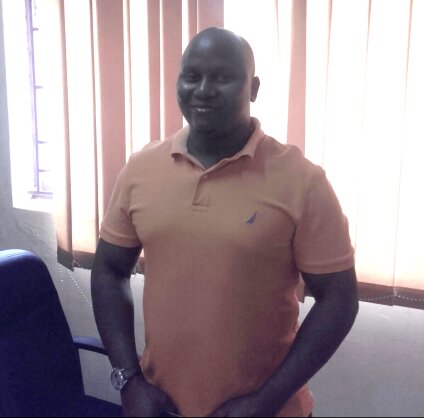Dr. Brian Bigirwa, Brentec Vaccines

Dr. Brian Bigirwa from Brentec Vaccines told us about developing and producing a vaccine for Newcastle Disease in Uganda.
What is your name and job title?
My name is Brian Bigirwa, I am the Quality Director at Brentec Vaccines in Uganda.
What does your organisation do?
Brentec Vaccines is a new commercial ‘incubator’ company based in Kampala that produces veterinary vaccines for rural small-holder farmers in Uganda.
What sparked your interest in veterinary vaccines?
I have a background in biochemistry and was involved in bio pharmaceutical manufacturing when the opportunity to work with the other partners in Brentec became available – the rest is history!
Why is the work of Brentec Vaccines important?
Prior to the establishment of Brentec, all veterinary vaccines in Uganda had to be sourced externally. Often these vaccines were thermolabile and frequently the efficacy of the vaccines was compromised by fluctuating temperatures during transportation. Supplying high quality veterinary vaccines is critical to support local rural households for whom healthy livestock is of real importance.
What has been your greatest achievement to date?
The release of our Newcastle Disease vaccine (Kukustar) in 2014 of which we now produce over 30 million doses annually. To ensure we were generating a product that suited the local market we had to undertake a huge amount of work. This included a lot of time spent talking to and listening to local farmers and suppliers so that we fully comprehended their needs. We also invested heavily in education and marketing to ensure that farmers understood the benefits of vaccination and that they could use the vaccines properly and so effectively protect their animals. In addition, we had to introduce several modifications into the vaccine manufacturing process to get the costs of vaccine production to a level the farmers would be willing to pay. Finally, and most challenging, was working with the local regulatory authorities to ensure the vaccines produced were of the highest quality.
What is your next ambition?
The next ambition of Brentec is to expand in two ways. Firstly, having gained the experience and knowledge of how to efficiently produce vaccines in a commercial setting in Uganda we are looking to expand the number of diseases for which we produce vaccines for the domestic market. Those on our target list include infectious brochitis disease (IBD) and fowlpox in chickens and lumpy skin disease in ruminants. Secondly, we are also interested in providing vaccines to farmers in other countries in east and central Africa.
What benefits do you hope to get from being a member of the International Veterinary Vaccinology Network (IVVN)?
I hope that the IVVN will enable us to directly work with members of the scientific and industrial community who may be able to help us in tackling challenges that will impede the development of effective new vaccines for livestock in low-and-middle income countries (LMICs). For example, expertise from other IVVN members that could be used to better understand local strain variation in pathogens (e.g. IBD) and how this should guide our development of appropriate vaccine seed strains could be instrumental in getting new, effective vaccines into the market.
What do you think you could help other members of the IVVN achieve?
Since Brentec was founded in 2009, we have learnt a lot about the trials and tribulations of commercially producing and delivering vaccines in Africa – information that has come from a tremendous amount of work by the whole Brentec team. I am sure we would be able to offer a lot of advice to anyone who is planning to do a similar thing in other parts of Africa and/or other regions of the world.
What is the best piece of advice you have had?
‘In vaccine production it is all about the cost’
What advice you would pass on?
The above is absolutely true!